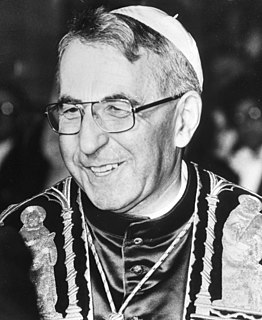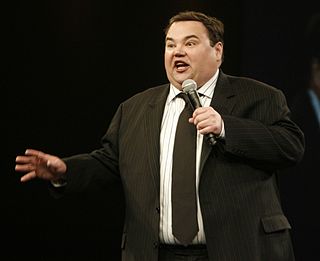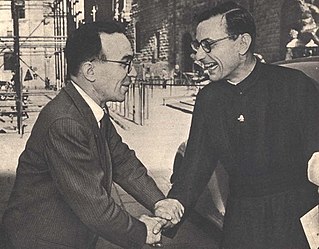A Quote by R. C. Sproul
When God issues a call to us, it is always a holy call. The vocation of dying is a sacred vocation. To understand that is one of the most important lessons a Christian can ever learn. When the summons comes, we can respond in many ways. We can become angry, bitter or terrified. But if we see it as a call from God and not a threat from Satan, we are far more prepared to cope with its difficulties.
Related Quotes
The priestly vocation is essentially a call to sanctity, in the form that derives from the Sacrament of Holy Orders. Sanctity is intimacy with God; it is the imitation of Christ, poor, chaste and humble; it is unreserved love for souls and self-giving to their true good; it is love for the church which is holy and wants us to be holy, because such is the mission that Christ has entrusted to it. Each one of you must be holy also in order to help your brothers pursue their vocation to sanctity.
There comes the baffling call of God in our lives also. The call of God can never be stated explicitly; it is implicit. The call of God is like the call of the sea, no one hears it but the one who has the nature of the sea in him. It cannot be stated definitely what the call of God is to, because his call is to be in comradeship with himself, for his own purposes, and the test is to believe that God knows what he is after.
I believe in Islam. I am a Muslim and there is nothing wrong with being a Muslim, nothing wrong with the religion of Islam. It just teaches us to believe in Allah as the God. Those of you who are Christian probably believe in the same God, because I think you believe in the God Who created the universe. That's the One we believe in, the One Who created universe - the only difference being you call Him God and we call Him Allah. The Jews call Him Jehovah. If you could understand Hebrew, you would probably call Him Jehovah too. If you could understand Arabic, you would probably call Him Allah.
There are many different kinds of doubt. When we doubt the future, we call it worry. When doubt other people we call is suspicion. When we doubt ourselves we call it inferiority. When we doubt God we call it unbelief. When we doubt what we hear on television we call it intelligence! When we doubt everything we call it cynicism or skepticism.
It is easier to serve God without a vision, easier to work for God without a call, because then you are not bothered by what God requires; common sense is your guide, veneered over with Christian sentiment. You will be more prosperous and successful, more leisure-hearted, if you never realize the call of God.
Prayer itself, born in Catholic families, nurtured by programs of Christian formation, strengthened by the grace of the sacraments, is the first means by which we come to know the Lord’s will for our lives. To the extent that we teach young people to pray, and to pray well, we will be cooperating with God’s call. Programs, plans and projects have their place; but the discernment of a vocation is above all the fruit of an intimate dialogue between the Lord and his disciples. Young people, if they know how to pray, can be trusted to know what to do with God’s call.
I think each village was meant to feel pity for its own sick and poor whom it can help and I doubt if it is the duty of any private person to fix his mind on ills which he cannot help. This may even become an escape from the works of charity we really can do to those we know. God may call any one of us to respond to some far away problem or support those who have been so called. But we are finite and he will not call us everywhere or to support every worthy cause. And real needs are not far from us.


































